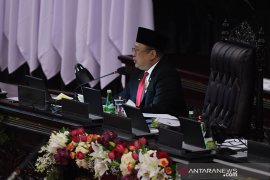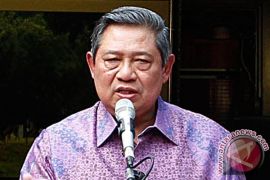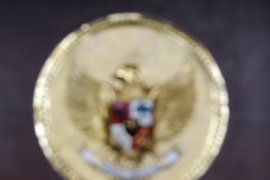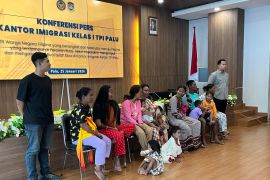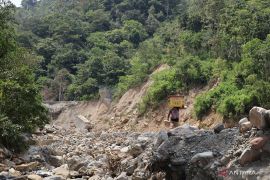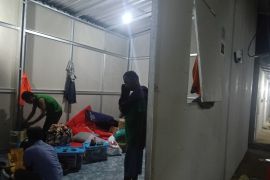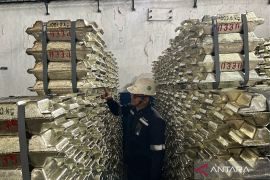Present at the meeting were President Susilo Bambang Yudhoyono, chairman of the People`s Consultative Assembly (MPR) Taufik Kiemas, House Speaker Marzuki Alie, chairman of the Regional Representatives Council Irman Gusman, chief of the Constitutional Court Mahfud MD., Supreme Court chairman Harifin Tumpan, chief of the Judicial Commission Erman Suparman and chief of the Supreme Audit Board, Hadi Purnomo.
"The aim of the meeting was building synergy without interfering in each state institution`s functions, role and tasks of the offices," Hadi Purnomo said at a press conference.
He said the meeting was the continuation of three meetings held earlier at the State Palace, the Bogor Palace and at the MPR building.
He said at the meeting the state institution chiefs exchanged views and discussed fundamental problems in the country.
"We discussed issues in Indonesia such as efforts to optimize financial management and law enforcement," he said.
Taufiq Kiemas meanwhile said the meeting had been of very positive value.
"At the meetings before and today we, chiefs of state institutions, exchanged ideas in the framework of building synergy among state institutions and finding solutions to the nation`s problems be they economic, social or political," he said.
Regarding state financial management. Kiemas said Indonesia was still facing certain challenges with regard to creating good and correct state financial management.
"(Good management) means that it must be administered according to accountancy standard and other administrative rules. Current management means that the state finance is used currently according to the allocations," he said.
Regarding law enforcement issue Kiemas said Indonesia was currently facing challenges with regard to judicial mafias that involved law enforcement officers.
"All of these problems have to be immediately solved so that public trust in law enforcement efforts and efforts to eradicate mafia practices will not wane," he said.
Kiemas said efforts also had to be taken to find a way out of the problems of corruption, collusion and nepotism that spread across sectors.
"There must have been repressive actions as a shock therapy for those committing the crimes and a lesson for the public," he said. (*)
Editor: Aditia Maruli Radja
Copyright © ANTARA 2011
